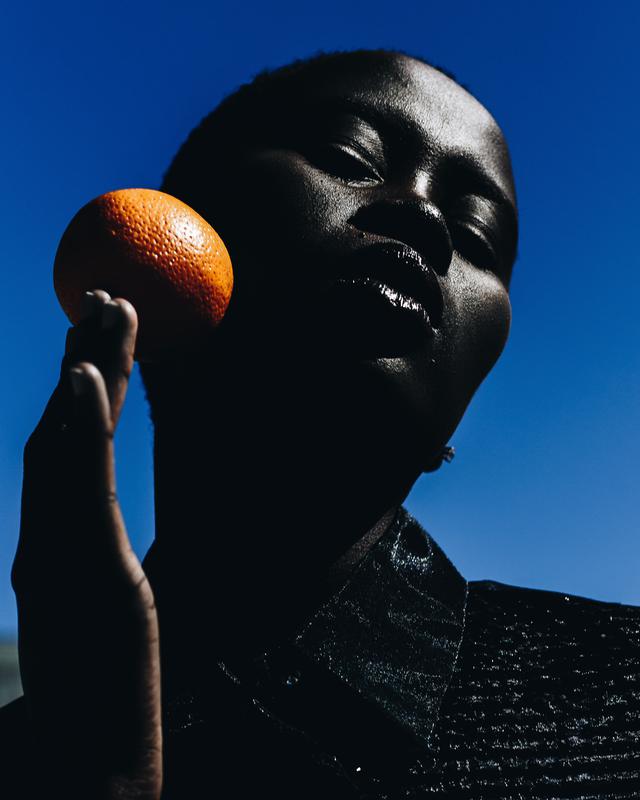by Jim Esch
July 8, 2021
Jim Esch is an Assistant Teaching Professor in English and Creative Writing at Widener University. His writing has appeared in Willows Wept Review, Two Hawks Quarterly, Dr. T. J. Eckleburg Review, and many other publications. He produces three podcasts: Podula Rasa, The English Suite podcast, and Song Tripping. Jim lives in West Chester, Pennsylvania, and grew up in Delco. For news and updates, subscribe to his newsletter: https://eschorama.substack.com.
Other People’s Comfort Keeps Me Up at Night by Morgan Parker ; Tin House Boks; 336 pages; $26.95
It is safe to say we are at the point where poet Morgan Parker needs little introduction. Winning a National Book Critics Circle Award will do that for a writer. Even before her 2019 collection Magical Negro won the award, literati were taking notice of her 2017 book There Are More Beautiful Things Than Beyoncé. Terrance Hayes affirmed Parker as a “forward-thinking literary star.” The aforementioned books were issued by Tin House, and now the publisher has seen fit to re-introduce readers to Parker’s first poetry collection, Other People’s Comfort Keeps Me Up at Night (originally published by Switchback Books in 2015). The reissue includes a new cover and new introduction by Danez Smith.
Morgan Parker’s debut collection arrived with her bristling voice fully formed. Candid, smart, funny, it navigates confessional and political modalities with aplomb. It is the kind of poetry that keeps readers on their toes, sparring with her bob-and-weave style, her lines leaping out like quick, stinging jabs.
At the heart of the arresting collection are explorations of black identity, stereotypes, and the implacable residue of tradition. “I’m Not The King of Black People” feels like a keystone piece in this regard. In “White Walls, White People,” Parker uses an art gallery setting and metaphors of “looking” to portray how race relations are never not being performed, even in contexts that pretend to ignore them. The microaggressions described in “The Grandmothers Never Did the Laundry” disclose a racism that is always lurking. In “Epistolary Poem For Reader, Brother, Grandmother, Men (Or, When I Say I Want To Spit You Up)” Parker’s woven strings of seemingly isolated observations and speculations build to a powerful crescendo:
Maybe if I knew my grandmother
and the white family she worked for
I would feel different
about everything around me.
Instead I can only describe half
of the view outside the kitchen window.
Brown curtains are covering
the other half and I don’t mind it.
The past has not been as rewarding
as I had hoped.
Instead it feels
like something dark and hard is back there.
I spit it up
like a stringy peach.
The poems hinge on striking juxtapositions of unexpected images that infuse new drama into what might otherwise become stale tropes. In “The World Is Beautiful But You Are Not In It,” the “missing a loved one” theme feels strangely luminous:
Ladies will say we are expert with machines
but they will be under two pitchers of sangria
I said you could make music out of this.
Ingesting artificial palm trees, exploding.
Your letters are getting shorter. I am getting close
enough to the sun to touch the tip of its cigar (13).
You could call this confessional poetry, cut from the mold of giants like Sexton, Berryman, Plath, et. al., but confessional doesn’t quite nail what Parker achieves here. The personal is also constantly aware of social and political consciousness, even when that subtext is muted. It’s as if world and speaker form a dialectical bond. Larger than life problems tangle with the personal:
…what you don’t know is
I envy this world and I want to save it
squeeze its bloodied hand like so
saying this will only sting for a minute
(from “There Are Other Things I Want To Explain But They Are Mysteries”)
Stylistically, Parker’s concise lines, fast cuts, and enjambments deliver her spicy, arch wit in small packages. The titles deserve a shout out, too. They do not mince words. “If My Housemate Fucks With Me I Would Get So Real (Audition Tape Take 1)” and “How To Piss In Public And Maintain Femininity”, offer sardonic yet endearing gateways; they lure us in, and then the condensed lines set to work delivering wincing blows:
In Africa this man
is a lawyer
but here
he sells records
on the street (16).
(from “Face Cathedral”)
At times, stanzas lean towards the cryptic and opaque, but the apparent chaos is more of a feint. The incoming images and rhetorical flourishes open a space for her voice to lift off.
Careful with that
face of yours: You know
this weather
is my fault.
Trains get lost, roads flood
worry and charcoal.
Motherfuckers
better duck.
(From “Morgan What, Morgan Who?”)
She uses bold metaphors to push what is familiar past our comfort zone into something freshly awakened:
We go downstairs
brush from our necks a smell
like honey burned in the bottom of a pan.
[From “The Housecleaners, Early Wednesday Morning Downtown (after Gwendolyn)"]
It is as if she would rather not get too cozy in a conventional poetic territory and instead posits an aesthetic of refusal to play by others’ rules.
We expect a poet’s first book to draw on a well of influences, and I do pick up echoes of The New York school, here. Poems such as “I Was Trotting Along And Suddenly” call to mind Frank O’Hara’s Lunch Poems. Like O’Hara, Parker has a sharp eye for suggestive detail, well suited to nailing impressions as they pulse along the course of a day. Her work is rife with nods to pop culture, too, especially breakbeat / hip hop culture. In “Boys, Boys, Boys (after Jay Z)”, the speaker confesses what she gets from men and what she expects, closing with the funny, stabbing “I can make a mixtape my own / damn self.” In “Real Housewife Considers Feminist Theory While Sketching Designs For Her Handbag Line” Parker deconstructs the semiotics of handbag ownership with gusto. “Miss Black America”, a series of five poems spread across the collection, riffs on the vintage Curtis Mayfield song, questioning how the beauty queen (and alter ego) will fare under the ubiquitous gaze of white supremacy and existential dread.
Occasionally, it seems like Parker’s idiosyncratic voice will slide into a vortex of excessively private ego-performativity, but she skirts the edge and tacks away from the confessional perspective, tempering it by thinking through identity as social construct. The title poem “Other People’s Comfort Keeps Me Up At Night” begins with self-loathing, then bifurcates into an agonistic dialogue with the personified nervous breakdown. Raw and isolated in a room behind the closed curtains, the sound of rock ‘n roll filters in from the distance:
Singing enters me, becomes the window.
Baby think of my skin
as the best part of the song. Take me
by the ribs and lay me at the bottom
of a dirty creek where I can
get a good view.
Now more than ever, we need viewpoints like this. Parker’s debut collection reclaims the defiantly affirmative power of self-assertion and fresh vision. Extricating the self from the baggage that twenty-first century late capitalism saddles us with is no easy task. Morgan Parker inspires us to be honest with ourselves and carves open a space where the hard work of self-remaking can begin.
©2021 West Trade Review
__________________________________________________________________________________________________________________________________________________________________________
__________________________________________________________________________________________________________________________________________________________________________
__________________________________________________________________________________________________________________________________________________________________________
__________________________________________________________________________________________________________________________________________________________________________
__________________________________________________________________________________________________________________________________________________________________________
Transcending the Confessional Tradition: Morgan Parker's Aesthetic Refusal to Play by the Rules
POETRY REVIEW
Stay Connected to Our Literary Community. Subscribe to Our Newsletter




